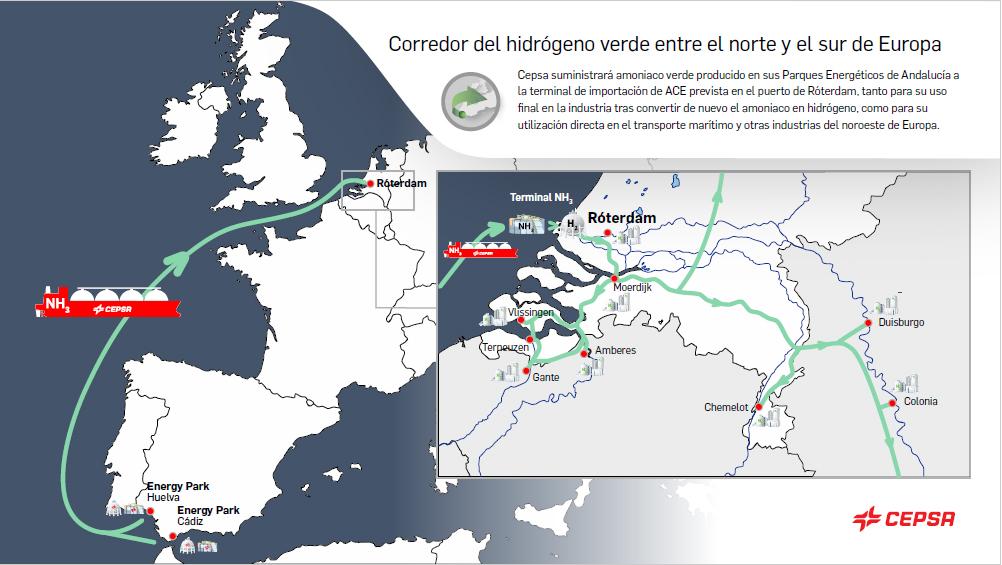Cepsa and ACE Terminal have signed a memorandum of understanding whereby the Spanish energy company will supply green ammonia to the planned import terminal at the Port of Rotterdam, for final use in industry after conversion of the ammonia back into green hydrogen, or for direct use as a renewable fuel for the maritime sector and other industries in North West Europe.
Cepsa is developing 2 GW of green hydrogen capacity at its two Energy Parks in Andalusia, in San Roque (and its facilities throughout the Bay of Algeciras) and in Huelva, as part of its 2030 strategy, Positive Motion, to become a leader in sustainable mobility and the production of renewable hydrogen and second generation biofuels, and thus a benchmark in the energy transition. The two hydrogen plants, which will represent an investment of 3,000 million euros, will form part of the Andalusian Green Hydrogen Valley, the largest green hydrogen hub in Europe, for which Cepsa has recently signed several collaboration agreements throughout the hydrogen value chain.
Gasunie, HES International and Vopak have partnered to develop the ACE terminal as an entry point in the Netherlands for green ammonia as a renewable hydrogen carrier and sustainable feedstock. The open access terminal will be located in the Port of Rotterdam, a crucial logistics infrastructure for Northwest Europe from an energy perspective. With the planned reuse of assets and infrastructure, ACE Terminal is a near-term commercialisation project. The agreement reached with Cepsa is ACE's first for the import of green hydrogen and ammonia.
The agreement announced today between Cepsa and ACE Terminal is the start of a collaboration aimed at reaching a binding commercial agreement to facilitate the shipping of green ammonia, redistribute the green ammonia to end markets in the catchment area of the Port of Rotterdam, and convert the green ammonia into green hydrogen for use by customers in North West Europe. The location of the ACE terminal in the Port of Rotterdam offers a direct connection to the Rotterdam industry and the planned national hydrogen network, and also has an excellent connection to the infrastructure to North West Europe, connecting by hydrogen to the industries in Germany, Belgium and Denmark.

